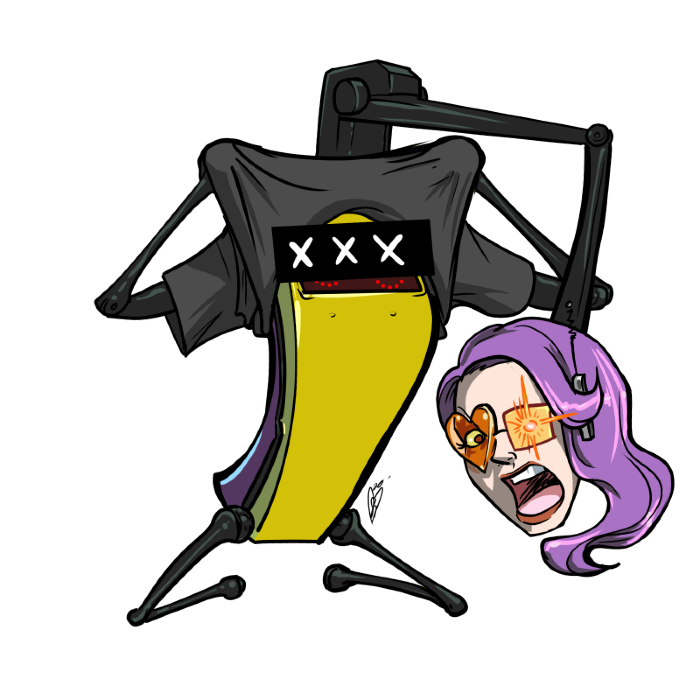
I read a lot. This is a selection of what I read this week (8/31/20 through 9/6/2020) that I think you should read, too.
Articles
*Brooke Jarvis’ The Scramble to Pluck 24 Billion Cherries in Eight Weeks for The New York Times: A long read but a necessary one. Americans need to know the labor that goes into their food supplies… and how said labor is often exploited and hampered by immigration crackdowns as well as COVID. While this article focuses predominantly on Washington state’s cherry industry, little changes from product to product when it comes to the way massive commercial agriculture operations treat their workers.
*Julie Kliegman’s How Zines Paved the Way for Asexual Recognition for .them: Allosexual voices and experiences tend to constantly steamroll and invalidate those of their asexual peers, even in the LGBTQIAP+ community (where the “A” is… yannow… supposed to be for “asexual”). Zines became an essential medium in asexual history because it allowed the authors to speak their own truths and find empowerment on their own terms. I definitely want to try and track down as many of the ones mentioned here as I am able.
*Robert Krulwich’s A (Shockingly) Short History Of ‘Hello’ at Krulwich Wonders for NPR: The first known use of English’s standard “hello” greeting happened in… 1827! Turns out, the language we take for granted every day isn’t nearly as old as we thought. So how did English speakers greet one another before that?
*Megan McArdle’s Friday Food Post: The Economics Behind Grandma’s Tuna Casseroles for Bloomberg: While today’s food fans chuckle over the Jell-o molds and mayonnaise-saturated salads of midcentury chefs, but the history behind how these feasts of yore came to be is glossed over when not outright ignored. Another fascinating food history read. A paywall-free version has been posted with Bloomberg‘s permission at Pocket.
*Andi Murphy’s The Wondrous Bread of the Pueblo Nations for Eater: Murphy combines family history, cultural history, food history, and geography into a comprehensive look at the practices and variances behind the bread made by the Kiis’áanii (Pueblo) peoples. She visits bakeries and homes alike to share how each recipe reflect the communities where they’re enjoyed.
*Paul B. Sturtevant’s A Transgender Fairy Tale for The Public Medievalist: Homophobia and transphobia prevented many traditionally oral European folktales from surviving written scholarship, with the few remainders relegated to obscurity. They exist, and this article shares a few alongside thoughtful contextual commentary.
*Chris Winkle’s The Four Essentials of an Effective Character Arc at Mythcreants: A handy guide to what writers of all types should consider when plotting out story arcs for their characters, some of the most common mistakes, and how to fix them. Winkle takes examples from three television shows and a novella series and dissects them, pointing out ways they could’ve fixed problem areas for a much stronger narrative.
Comics
As always, my weeklies/weeklies-ish:
*Huda Fahmy’s Yes I’m Hot in This
*Phylecia Miller and Jules Rivera’s Hi, Phylecia!
*Linda Sejic’s Punderworld
*Jessi Sharon’s The Sea in You
*Rachel Smythe’s Lore Olympus
*Steenz’s Heart of the City
Matt Lubchansky’s Off the Rack for The Nib reflects on the arbitrary distinctions between “masculine” clothing and “feminine” clothing, especially when how history often sees the two trading places. There really is no reason for them to exist, and designers and clothing manufacturers would do well to offer wares for many more shapes and sizes to make more fashion more accessible to more people.
Books
I finished Tadashi Suzuki’s The Way of Acting, which concludes on essays about why he chose the rural village of Toga to build his theatre and its impact on the economically struggling community, as well as short excerpts from his diary and the full text of his Clytemnestra. All interesting information for people especially interested in theatre history—which I am—but Clytemnestra stood out and concluded the volume with a power and force appropriate to anyone with even a passing familiarity with Suzuki’s methods.
The one-act play “requotes” Euripides’ Electra and Orestes, Aeschylus’ The Oresteian Trilogy, and Sophocles’ Electra, condensing the epic into a tight, tense family drama of vengeance and murder. As Suzuki points out, the major themes in Greek tragedies apply to contemporary struggles, so it’s easy to play with and streamline the language for our own tongues while still stoking the original stories’ fire.
In addition, I picked up Maria Sherman’s Larger Than Life: A History of Boy Bands from NKOTB to BTS as part of my quest to understand why, even though I was the target audience during the Backstreet Boys’ and *NYNC’s heyday, the only boy band I actually like is BTS. I’m trying to make an honest effort to find things that I can appreciate in the harmless media that I don’t enjoy, and in that Sherman’s expertise and enthusiasm proved successful. She points out how misogyny often colors criticism of bands especially loved by young women, using The Beatles’ initial dismissal before “legitimate” music writers praised them as an example. While the book didn’t convince me to fire up Spotify and start streaming Millennium, it did help me analyze how my own views have contributed to diminishing and sidelining girls and young women. Which is, in the end, more important.
See you next week, fellow bookish buffs!
——-
Love the artwork for this feature? That’s all from the magical mind of Jules Rivera. Support her on Patreon.
Writing is real work. If you would like to support the labor I put into this post, or if you want me to retire early so you never have to read another thing I write, please consider making a small compensation to my Ko-fi.
